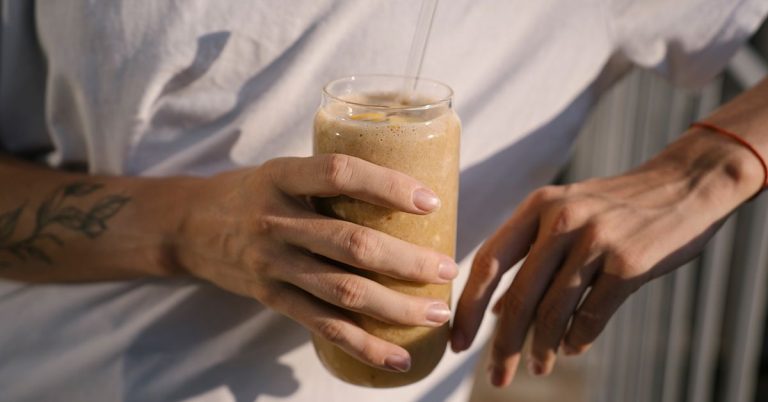Chronic constipation affects more than one in 10 people worldwide and can cause infrequent bowel movements, hard stools, and abdominal discomfort. Historically, guidance focused on generic advice to eat more fiber and drink enough water. For the first time, the British Dietetic Association (BDA) has issued comprehensive, evidence-based dietary guidelines for adults with chronic idiopathic constipation, based on 75 clinical trials and published October 13 in the Journal of Human Nutrition and Dietetics.
How the guidelines were developed
A seven-member Guideline Steering Committee of experts in nutrition, dietetics, gastroenterology, and gut physiology reviewed the evidence on diet-based approaches for otherwise healthy adults with chronic constipation. Secondary constipation (from other conditions or medications) was not the primary focus, though findings may be cautiously applied there.
The team performed four systematic reviews and meta-analyses covering supplements, foods, drinks, and whole-diet approaches. Only randomized controlled trials (RCTs) were included for supplements; guideline statements required at least two RCTs to support findings for foods and drinks. Searches covered February 2022 to July 2023. Two reviewers independently screened studies, extracted data, assessed bias, and pooled results where possible. Effect sizes were reported as risk ratios or mean differences. The GRADE framework rated evidence quality from high to very low, and recommendations were classified as “strong” (likely to benefit most people) or “qualified” (benefit may depend on individual circumstances). Statements were finalized by modified Delphi consensus with at least 85% agreement.
Summary of recommendations and evidence
The guidelines include 59 dietary statements: 27 strong and 32 qualified. Evidence quality was limited: 66% of statements were based on low-quality evidence, 20% on very low, and 14% on moderate-quality studies.
Fiber supplements
– Psyllium: Most consistently effective. Increased the number of people experiencing relief, raised stool frequency, and softened stool consistency. May increase flatulence but generally did not worsen bloating or abdominal pain.
– Other fibers: Polydextrose and some inulin mixtures did not show clear benefit.
Probiotics
– Overall modest benefit: Probiotics slightly increased the chance of symptom improvement and stool frequency, with effects varying by strain.
– Bifidobacterium lactis: Increased stool frequency but not consistency.
– Multi-strain probiotics: Slightly softened stools.
– No single probiotic strain demonstrated consistent benefit across all outcomes; side effects were generally mild and similar to placebo.
Synbiotics
– Combining probiotics and prebiotics did not improve stool frequency, stool consistency, or global symptoms in the limited trials available.
Mineral and herbal supplements
– Magnesium oxide: Improved overall constipation symptoms and quality of life (moderate-quality evidence).
– Senna: Despite popularity, pooled results from two trials did not show consistent benefit for treatment response or stool frequency.
Specific foods
– Kiwifruit: Improved some symptoms, including reducing abdominal pain and the feeling of incomplete evacuation. It may be preferred over psyllium for people prone to bloating or gas.
– Rye bread: Increased bowel movements but slightly worsened overall gastrointestinal symptom scores compared with white bread; the change was small and may not be clinically important for all patients.
Drinks
– High-mineral water: Water rich in minerals such as magnesium and sulfate was more effective than low-mineral water at softening stools or increasing bowel frequency. It did not, however, improve overall symptoms, abdominal pain, or quality of life compared with low-mineral water. The mineral levels studied were much higher than typical tap water in many countries.
Whole-diet approaches
– Few trials: Only one RCT examined a high-fiber diet, and there was no qualifying evidence for other patterns (e.g., Mediterranean diet). No recommendations were made for whole-diet approaches due to lack of data.
Practical context and lifestyle advice
Registered dietitians not involved in the guideline emphasized a varied, balanced diet that includes both prebiotic and probiotic foods, adequate hydration, mindful eating (slowing down and chewing well), and sufficient sleep to support digestion.
When to see a doctor
Diet and lifestyle changes can relieve symptoms for many, but medical evaluation is important if constipation persists. Seek medical attention for chronic constipation lasting longer than three weeks or for signs including:
– Passing stool two or fewer times per week
– Unusual changes in stool shape, color, or smell
– Frequent stomach discomfort or bloating
– Unplanned or unexplained weight loss
Seek emergency care if constipation is accompanied by:
– Vomiting
– Severe, constant abdominal pain
– Sudden or severe abdominal distention
– Blood in the stool
– Fever
Bottom line
By combining evidence-based dietary strategies with healthy lifestyle habits, most people with chronic constipation can find meaningful relief. The new BDA guidelines identify specific supplements, foods, and drinks with demonstrated benefit—most notably psyllium, some probiotic strains, magnesium oxide, kiwifruit, and high-mineral water—while highlighting limited or inconsistent evidence for other popular remedies.




